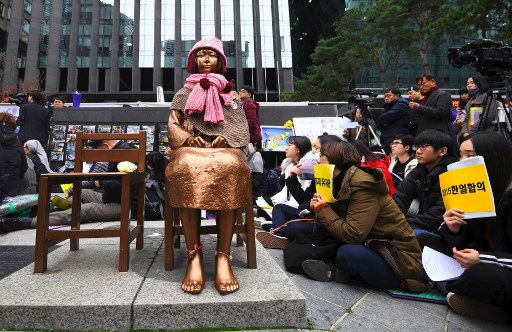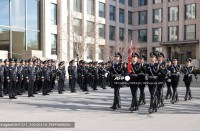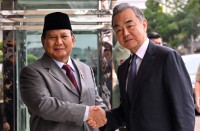
SEOUL, South Korea (AFP) — A foundation set up to compensate victims of Japan’s wartime sex slavery has been formally dissolved, South Korean officials said Friday, the latest chapter in a bitter dispute over the two countries’ shared history.
The $8.8 million fund was established in 2015 as Tokyo and Seoul made a renewed effort to push past their continuing row over Japan’s brutal 1910 – 1945 occupation.
The money — which the two sides agreed at the time was a final settlement — was intended to compensate so-called “comfort women” — a euphemism for those forced to provide sex for Japanese troops during World War II.
Around half of the money has been claimed by a dwindling number of survivors or their families.
But ties have since frayed, with some in South Korea insisting the 2015 deal did not hold Japan sufficiently accountable for its past abuses.
Seoul’s Gender Equality Ministry, the government body in charge of issues related to former sex slaves, said Friday the foundation had been put into liquidation.
“We have yet to decide on what to do with the funds provided by Tokyo,” an official said.
Japan urged South Korea to return to the deal.
“The South Korean government’s plan to liquidate the foundation goes against the Japan-South Korea agreement and is extremely problematic. We have said this repeatedly,” said Tokyo’s deputy chief cabinet secretary Yasutoshi Nishimura.
The dissolution of the foundation comes after Tokyo restricted some exports to South Korea in a row over compensating those forced to work in Japanese factories more than seven decades earlier.
Despite close economic ties and a vibrant intercultural exchange, the neighbouring countries have struggled to get past their history.
When Seoul-Tokyo relations were normalised in 1965, Japan agreed a reparations package that included grants and cheap loans intended to cover victims of various wartime policies.
Japan insists this package permanently settled the past, but parts of South Korean society have repeatedly returned to the issue of compensation.
While Tokyo has formally apologised for its actions, right-wing politicians have frequently equivocated, irritating Seoul and sparking demands for a more complete reckoning.
© Agence France-Presse







